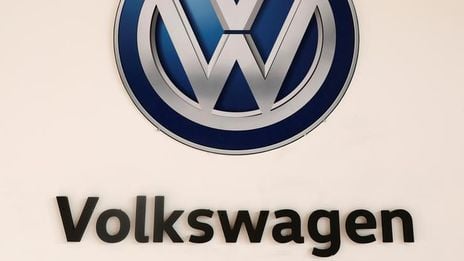--Germany's government will increase electric vehicle subsidies for cars worth up to EUR40,000, as part of its coronavirus-stimulus package
--Volkswagen stands to benefit the most with its more affordable electric vehicle offerings, while Daimler and BMW's pricer cars may lose out
--Analysts expect the stimulus to strengthen the German electric-vehicle market, and incentivize premium car makers to transition faster
By Jessica Sier
Germany's coronavirus-stimulus package includes measures to build the broader electric vehicle market, boding well for Volkswagen AG but puts further pressure on premium brands such as BMW AG and Daimler AG to speed up their transition.
The stimulus measures, which are included in a 130 billion euro ($146 billion) package announced late on Wednesday by Chancellor Angela Merkel, effectively double the existing incentive programs for electric vehicles and hybrids.
Electric vehicles worth up to EUR40,000 will now be subsidized by a total of EUR9,000 per vehicle-- EUR6,000 coming from the government, and EUR3,000 from the car maker--with further government support to build more charging stations and produce battery cells.
The German government also cut the main VAT rate to 16% from 19%, which applies to car sales as well as other items, and applied a cut in the renewable energy surcharge to reduce electricity bills in 2021 and 2022.
"Combined, the measures will create a Nordic style environment for the German car buyer, with electro-pioneer Volkswagen as the relative winner," said Demian Flowers, Head of Automotive Research at Commerzbank.
"Ultimately these changes may cajole the industry's electric laggards, BMW and Daimler in particular, into competing more seriously on the electrification world stage."
Analysts had broadly expected the German government to mirror its 2009 EUR5 billion package, which offered a EUR2,500 new car subsidy for those trading in a vehicle that was more than nine years old, and saw more than two million customers take up the offer.
During the coronavirus crisis, German car makers lobbied hard for a similar plan that would include stimulus for combustion-engine vehicle sales, which account for most of their revenue and allow them to subsidise the production of more expensive electric and hybrid vehicles.
Volkswagen has invested heavily in a scalable electric platform and the company is reliant on battery electric offerings to meet its carbon-emissions targets. Daimler, which makes Mercedes-Benz cars, and BMW have fewer competitive electric vehicle offerings and price tags generally higher than the EUR40,000 subsidy cap.
"This EV-related stimulus is a positive for Volkswagen on a macro scale as it will likely incentivize the incremental or undecided buyer to venture into electric territory," said Tom Narayan, auto analyst at RBC Capital Markets.
Given the incentives include all electric car makers, including US-based Tesla Inc. and French car makers Renault S.A. and Peugeot, BMW and Daimler are now facing even tougher competition, Mr. Narayan said
But while this week's German stimulus is good for electric customer demand, Volkswagen and other brands can only produce the limited amounts of battery and electric vehicles they had provisioned for in 2020.
"The electric-focused car makers still have supply constraints; there's only so many electric vehicles they can make at the moment," says Angus Tweedie, auto analyst at Citi.
"We've seen good demand from corporates, and this package could increase demand in the general public, but there is only so much supply available for 2020."
Investors' response was muted on Thursday, with Volkswagen shares drifting 1.2% lower to EUR142.2, BMW off 1% to EUR57.49 and Daimler slumping 2.7% to EUR36.9 at 1200 GMT.
More broadly, auto stocks have staged a strong recovery in recent weeks, with the STOXX Europe 600 Automobiles & Parts Index up 40% from its 2020 low in mid-March, leaving it down 21% for the year, after the coronavirus pandemic crippled car production facilities and supply chains ground to a halt.
But the promise of increased central-bank liquidity has seen global investors rotate into value and riskier equities, with pummeled European car makers benefiting from those broader capital inflows.
Write to Jessica Sier at jessica.sier@wsj.com





